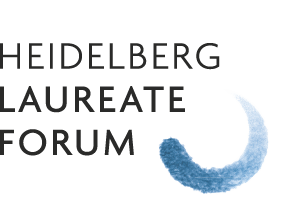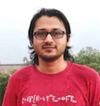Exclusive interview series with laureates on HLF’s YouTube channel

A discussion with Jeff Dean
The laureates that participate in the annual Heidelberg Laureate Forum (HLF) are the undisputed main attraction, especially for the young researchers who have been mentored by their groundbreaking work. Whether they have received the Abel Prize, ACM A.M. Turing Award, ACM Prize in Computing, Fields Medal or the Nevanlinna Prize, the laureates are renowned in the worlds of mathematics and computer science. For one week each September, 200 carefully selected young researchers listen to lectures and discuss with innovators in their disciplines. These invaluable voices of experience can pass on their lessons through an exclusive interview series now available on HLF’s YouTube channel.
2017 marked the fifth occurrence of the HLF and to commemorate the anniversary, many of the laureates were able to share about the most influential five-year period in their lives and what helped them to succeed. In brief, informal discussions, the renowned scientists passed on career advice and shared why they see the Heidelberg Laureate Forum as a meaningful gathering. Each conversation contains ingredients for academic progress and insights into the lives of people that have made significant impacts.
In the first release of the interview series, Jeff Dean, head of Google’s artificial-intelligence efforts and ACM Prize in Computing recipient, explains a principal factor in choosing a fruitful area to focus. Dean’s selection criteria for good problems begins with a question, “If they turn out as well as you hope, will the world be a different place as a result of that?” He also encouraged researchers to strike a balance, “It’s really important to try to be realistic but also sort of ambitious.”
To recognize the small milestone of the 5th HLF, attention was drawn to how much can be accomplished in five years and that exponentially more is possible each day. Dean pointed to the speed with which researcher findings in machine learning alone are being published, “The number of papers that have been posted to arXiv have been increasing actually faster than Moore’s Law over the last five years.” Results and ideas are able to circulate throughout the scientific community at an unprecedented rate and volume. However, a natural byproduct of the information flood is the necessity for specialization in promising areas such as computer vision and unsupervised learning.
Looking toward the future, Dean is excited and optimistic about what lies ahead, “I think there is going to be a big push in the next five years to really build much more flexible machine learning systems that can do thousands of different things.” Once that level of flexibility is achieved, it will mark a major shift in computing capabilities.
Throughout the interview, Dean is generous with advice, offers lucid insights and provides pointed guidance for researchers both novice and veteran. For a more in depth look, visit the HLF YouTube channel under the Laureates@HLF17 folder to see the interview with Jeff Dean in full. This interview series plus coverage of previous laureate lectures extract the HLF experience and distill it into a concentrated overview: http://www.youtube.com/user/LaureateForum
As preparations for the 6th HLF this September 23–28 continue, program updates and a current list of the participating laureates, which includes Jeff Dean, can be found on the HLF website: https://www.heidelberg-laureate-forum.org/event_2018/
Background
The Heidelberg Laureate Forum Foundation (HLFF) annually organizes the Heidelberg Laureate Forum (HLF), which is a networking event for mathematicians and computer scientists from all over the world. The 6th Heidelberg Laureate Forum will take place from September 23 to 28, 2018. The HLFF was established and is funded by the German foundation Klaus Tschira Stiftung (KTS), which promotes natural sciences, mathematics and computer science. The scientific partners of the HLFF are the Heidelberg Institute for Theoretical Studies (HITS) and Heidelberg University. The HLF is strongly supported by the award-granting institutions, the Association for Computing Machinery (ACM), the International Mathematical Union (IMU), and the Norwegian Academy of Science and Letters (DNVA).
The interview can be viewed below.
(Press Release)
